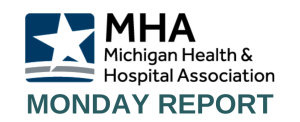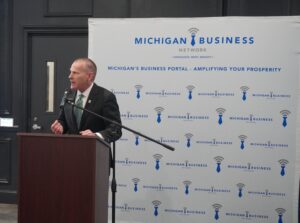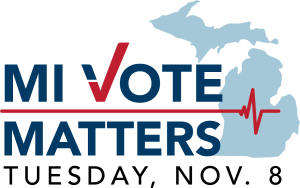
 Michigan Legislature Advances Healthcare and Economic Measures
Michigan Legislature Advances Healthcare and Economic Measures
The Michigan Legislature reviewed, discussed and moved forward legislation the week of March 4 that positively impacts patients, hospitals and health systems. Notably, the legislature took final action a bill related to the Renaissance Zone …
Congressional Spending Package Solidifies Medicare SUD Coverage
The President signed March 8 a six-bill Congressional funding package to avoid a federal government shutdown that evening. The funding package included several healthcare provisions, including a measure expanding access to substance use disorder (SUD) …
 Michigan HR Professionals Gathers at the MHA HR Conference
Michigan HR Professionals Gathers at the MHA HR Conference
More than 90 healthcare human resources (HR) professionals from across the state gathered at the MHA Human Resources Conference March 5 in Lansing. Attendees participated in hands-on facilitated discussions that developed innovative ideas focused on …
Change Healthcare Outage Continues to Impact Members
The MHA has been in close contact with the American Hospital Association, the Michigan Healthcare Security Operations Center and other partners regarding the Change Healthcare cyberattack that has impacted hospitals nationwide over the …
MHA Behavioral Health Learning Series: Second Webinar
The MHA is hosting a five-part webinar series to provide hospital staff with a deeper understanding of Michigan’s behavioral health system and the hospital’s role in connecting patients with care. These webinars are part of …
MIHI Hosts Webinar Series on BEAD State Challenge Process
The Michigan High-Speed Internet Office (MIHI) will be hosting three educational webinars to answer questions about the Broadband Equity Access and Deployment (BEAD) State Challenge Process, which is currently pending approval from the National Telecommunications …
 MHA Podcast Uplifts Importance of Submitting Adverse Event Data to Improve Patient, Staff Safety
MHA Podcast Uplifts Importance of Submitting Adverse Event Data to Improve Patient, Staff Safety
The MHA released a new episode of the MiCare Champion Cast during Patient Safety Awareness Week to uplift why hospitals should prioritize submitting adverse event data, in addition to what can be done to improve the culture around reporting. …
The Keckley Report
 Healthcare Spending 2000-2022: Key Trends, Five Important Questions
Healthcare Spending 2000-2022: Key Trends, Five Important Questions
“Last week, Congress avoided a partial federal shutdown by passing a stop-gap spending bill and now faces March 8 and March 22 deadlines for authorizations including key healthcare programs. …
The reality is this: no one knows for sure what the U.S. health economy will be in 2025 much less 2035 and beyond. There are too many moving parts, too much invested capital seeking near-term profits, too many compensation packages tied to near-term profits, too many unknowns like the impact of artificial intelligence and court decisions about consolidation and too much political risk for state and federal politicians to change anything. …”
News to Know
MHA-member communications professionals are encouraged to save the date for this year’s MHA Communications Retreat, scheduled from 8:30 a.m. to 4 p.m. Tuesday, May 7, at the Henry Center for Executive Development in Lansing.
 MHA in the News
MHA in the News
Chief Healthcare Executive published an article March 5 about the impact of the Change Healthcare cyberattack on hospitals and health systems across the country. The publication spoke with several state hospital associations representing Michigan, Florida, …

 Michigan Legislature Advances Healthcare and Economic Measures
Michigan Legislature Advances Healthcare and Economic Measures Michigan HR Professionals Gathers at the MHA HR Conference
Michigan HR Professionals Gathers at the MHA HR Conference MHA Podcast Uplifts Importance of Submitting Adverse Event Data to Improve Patient, Staff Safety
MHA Podcast Uplifts Importance of Submitting Adverse Event Data to Improve Patient, Staff Safety MHA in the News
MHA in the News







